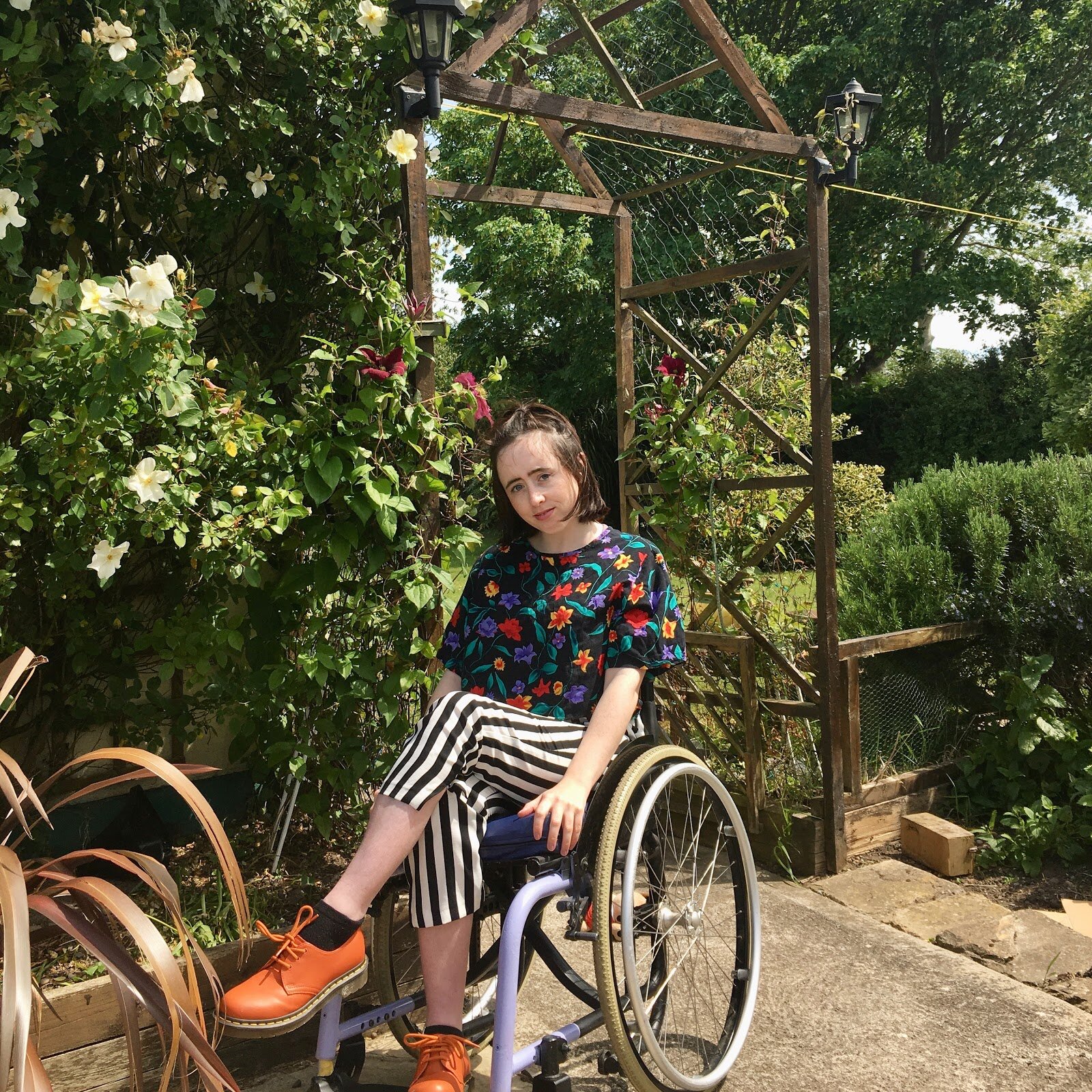Niamh Ní Hoireabhaird: "Your teenage years are about discovering who you are, and I had to figure out how my disability would fit into that. I decided my disability was a part of me"
Image Description: Niamh sitting in a wheelchair, wearing a floral top, stripey pants, and brown shoes on a sunny day with greenery behind her. Underneath the photo is purple text saying "Your teenage years are about discovering who you are, and I had to figure out how my disability would fit into that. I decided my disability was a part of me, Niamh Ni Hoireabhaird, Disability Rights Activist
I wasn’t diagnosed with my progressive, genetic neuromuscular condition Friedreich’s Ataxia until I was thirteen, so I didn’t grow up with my disability.
Sometimes I wish I had the experience of being able to grow up and develop with my disability, instead of having it suddenly thrust on me one afternoon in a doctor’s office. I wish I had grown up knowing that my disability was nothing to cringe at or shy away from.
It took a long time (almost six years, actually) for me to wrap my mind around the idea that I was disabled and my condition would progressively get worse. I felt like my life was completely uprooted and everything I had previously thought about myself was a lie.Was I still the same me as I had been the day before my diagnosis?
I didn’t know anyone else with a disability. Well, not that I was aware of, anyway. Not understanding what it meant to be part of a disabled community, I felt very alone in the first few years after my diagnosis.
When I was 19, I was finally ready to accept that I needed a wheelchair as my balance and stamina were getting progressively worse. Looking back, I wish that I had come to that conclusion long before that, but I needed the time to get my internal narrative straight about my disability. Your teenage years are about discovering who you are, and I had to figure out how my disability would fit into that. I decided my disability was a part of me
Almost instantly, my relationship with my body and my disability began to improve as I discovered that the wheelchair was not ‘restrictive’, as I had thought it would be, and that accepting my disability and needing help allowed me to live a much happier, independent life. I started college, moved away from home and began to travel - all things I wouldn’t have been able to do if I hadn’t accepted my need for a wheelchair.
Image Description: "It took me years to understand that disability is not a dirty world. Not knowing any disabled people whilst I was growing up, my entire perception of disability relied on how it was portrayed in the media and pop culture."
It took me years to understand that disability is not a dirty world. Not knowing any disabled people whilst I was growing up, my entire perception of disability relied on how it was portrayed in the media and pop culture. When I started college in Dublin, I began to meet some fantastic people with disabilities and I started to view my disability in a new, brighter light that my life had lacked in previous years.


